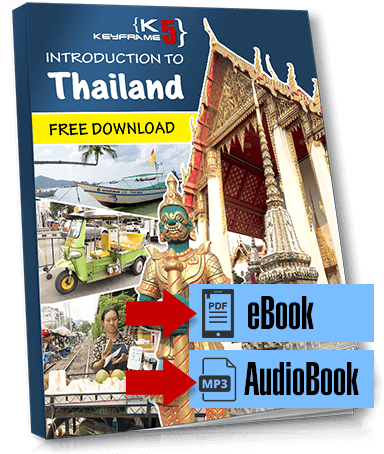Many of the tips here can be used in many countries around the world, not just Thailand.
If you’re staying for a short holiday, you can still follow some of these tips but they’re aimed more toward people living long-term in Thailand.
If you’re coming to Thailand for your holiday or travel and you don’t care about saving money, then this doesn’t apply to you. This is not about being a cheap Charlie, it’s about making the most of your money, living and traveling Thailand or other parts of South East Asia.
1. Money exchange (hard cash)

When it comes to exchanging my money, I avoid exchanging my cash with the banks, unless I can’t find SuperRich or Value Plus to exchange my money.
If you’re living in Thailand long term, you will run out of hard cash to exchange.
See #2 on how I exchange my money online and get the real exchange rate. Not what the banks charge and how I save myself around $500-$600 in bank fees each year.
2. Avoid ATM fees

This is how I save so much money each year, I simply avoid the ATM fees and I get the real exchange rate, the same rate you see on Google, Yahoo! and XE.com.
If you’re just on a short holiday in Thailand, it’s best to just exchange your money with a bank or withdraw your money from the ATM and get your Thai currency almost instantly. The process is not instant if you were to exchange online. It will take 3-5 business days for the entire process to complete but the benefit is 8x cheaper than the banks and this will work with many currencies.
Why you want to avoid ATM FEE?
Each time you use your bank card from your home country at the ATM in Thailand to withdraw money from your account, the Thai ATM charges 200 baht for each withdrawal, no matter how much you withdraw.
The ATM fee used to cost me 100 baht many years ago. At the time of writing this, it’s 200 baht, I won’t be surprised five years from now, it will be 500 baht.
That’s 200 baht (or about $5.70 USD) per ATM withdrawal. After that, your bank may charge you a foreign exchange fee. This costs a few dollars but they can add up. My bank charges me about $3-$4 per foreign exchange fee.
Third, not too many folks realize this, you will not get the real exchange rate, the same rate you see on Google, Yahoo! and XE.com. You will get the exchange rate at whatever the bank charges. Which means you get charged three times to do one withdrawal in Thailand if you’re using your bank card from your home country.
Also, depending on which Thai ATM you use, you can only withdraw a maximum of 10,000 baht to 30,000 baht per transaction. If you want to withdraw more money, you will need to make more transactions and of course, pay another ATM fee, pay foreign exchange fee and not get the real exchange rate.
I avoid all of that by exclusively using an online company to transfer my money from my bank account at home, then converting the funds into Thai baht and depositing that money straight into my Thai bank account.
Get your first exchange of £500 British Pounds or equivalent currency value without any fee on your first transfer: click here.
I get the real exchange rate and I only get charge 1.5% (for example, if I exchange $1,000 it will just cost me $15 for all the fees, no foreign exchange fee, no 200-baht ATM fee and I get the real exchange rate).
Before you start, you will need a Thai bank account to deposit the money into and to withdraw (see the next tip below). You can, of course, send the money to any Thai bank account you choose.
3. Open a Thai bank

This is for people living here long term, if you’re just visiting don’t bother, unless you have nothing better to do.
If you can, get a bank account with TMB, this is what I use exclusively in Thailand. Other banks may charge 15-20 baht for withdrawing and depositing money. TMB charge no fee for withdrawing or depositing money and you can withdraw money at any bank or ATM in Thailand for free.
I made a separate video talking about how to open a Thai Bank Account.
4. Use Local transportation
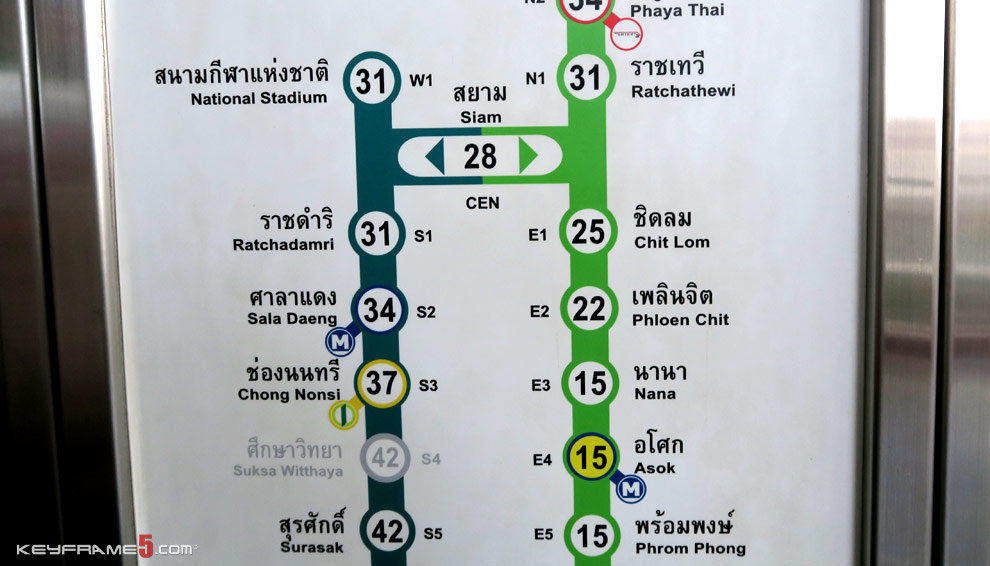
Use a meter-taxi, do not use non-metered because this will cost more in most cases and this should be common knowledge by now.
Meter-taxi fares starts at 35 baht. The cost will be determined by the distance traveled. The non-metered taxi can charge you whatever they want.
If you’re in Bangkok, use the BTS (skytrain), MRT (subway) or Rail Link System (connect to the airport).
5. Stay in cheap accommodations
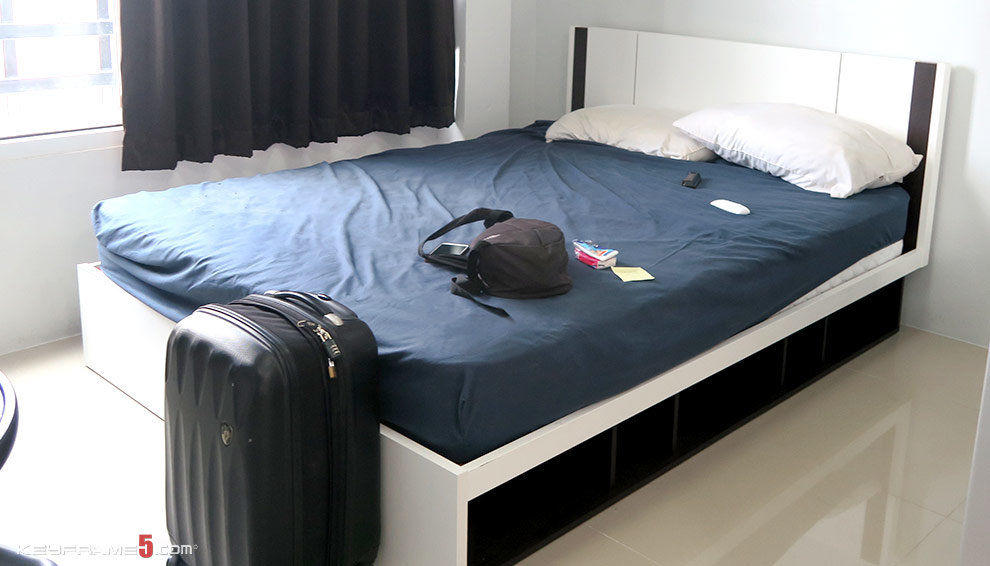
For short terms, use hostels, they cost as low as 100 – 200 baht per night ($2.85 – $5.70 USD). Although you will not get any privacy in a hostel. Look up a hostel using Agoda.com
If you want your own private room, a private hotel room can cost as low as 500 baht per night ($14 USD) and up.
For the best value, rent an apartment if you’re staying long term.
6. Eat local Thai foods

A regular Thai dish costs around 30-60 baht ($1-$2USD) and a bottle of water costs about 10 baht ($0.30 cents). If you’re not full with the first dish, just order another one and you still pay no more than $5 USD.
If you worry about hygiene, eat inside a shopping mall. They usually have at least one or more food courts inside a shopping mall.
If you’re planning to go to the beach, eat before you go. Avoid buying food at the beaches, as prices are generally higher. If you can, bring your own drinks and water to the beach.
7. Avoid Western Food

Don’t eat at western fast food chains like McDonald, KFC, Starbucks or Burger King.
Avoid eating western breakfast and eat what the locals eat.
Things like cheeses are generally imported into Thailand and the cost of transportation, taxes and other fees can make western food more expensive. Often Western produce may cost more money than what you pay back in your home country.
8. Avoid Imported Alcohol
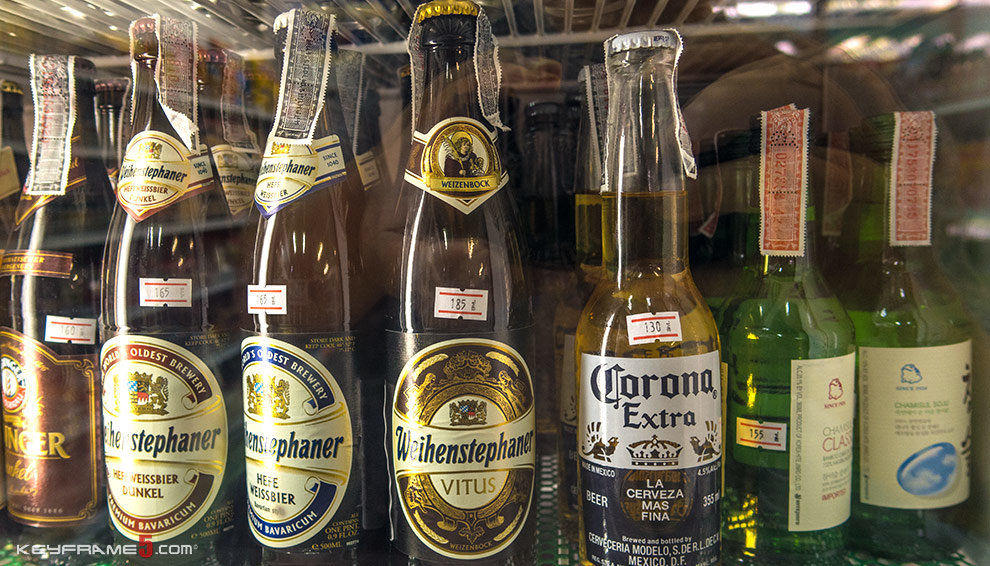
Imported alcohol can be expensive. The average cost for a bottle of beer back where I came from cost about $2 dollars, while that same bottle of beer might cost double or triple in Thailand.
Stick with local Thai alcohol, if you want to drink and save money. It’s best to take it easy on the booze or stop drinking all together.
9. Avoid buying Laptop, Computer, camera and other gadgets
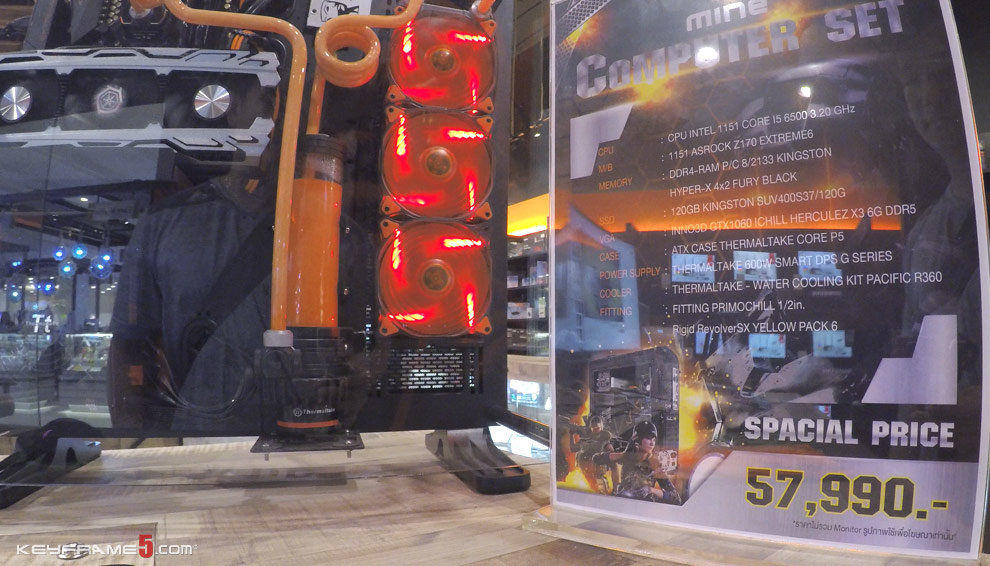
I think it’s best to buy all your electronic equipment at home before you come to Thailand. Don’t assume everything in Thailand will be cheap; a lot of things in Thailand will be cheaper than most western countries but not everything is cheaper in Thailand.
For me, I live in Canada and we have Best Buy, Canada Computers and more. Online we have Amazon, eBay and if I wanted to buy second hand items on sites like Kijij or Craigslist.
Simply put, there are many options to shop in Canada.
In Thailand, there is no Best Buy – there are similar stores that may sell the same items but since they’re imported into the country. The price is usually similar to the price anywhere else in the world or in some cases higher.
Also, when you live in North America, there are special holiday seasons when big retailers put a lot of their products on sale. Special events like Black Friday, Cyber Monday, Boxing Day, etc.
Thailand do not have those holidays. I think it’s best to buy everything at home and only buy something you forgot to buy at home when you come here.
One last time, if you really need to buy something in Thailand, make sure it’s something you really want. Most stores, even big stores inside big shopping malls may not offer refunds or exchange. Even for big ticket items worth over $1,000 dollars, they might not offer a refund or exchange to store credit, but that depends on the store. So make sure you ask the store about their return policy if you think you might return the item.
Unless there was a defect and it is still under warranty, if that’s the case you can return it to have it fixed or replaced.
10. Just avoid all imported goods
Many people assume everything in Thailand is cheaper than a western country. I used to feel the same way. A lot of things are cheaper in Thailand than most western countries but not everything.
If the products are produced in Thailand, it generally means it’s cheaper than most places. Some items may in fact cost the same or sometimes cost more in Thailand. This is especially true when it comes to imported items.
11. Go during the low seasons (March – August)
Most tourists come for a vacation in Thailand during the high seasons. This results in more demand for accommodation, services, including flights to Thailand.
During the low seasons, flights are generally cheaper. Some hotels might lower their price to attract more customers because they have more vacant rooms although this is not always the case.
Also, it is much easier to find a hotel or apartment during the low seasons, especially if you’re looking for affordable accommodation.
12. Avoid the islands
Don’t go to the southern part of Thailand, such as Phuket. Phuket is the most expensive province in Thailand and it’s not known for backpackers.
Stay away from the islands and other tourist hot spots if you are on a budget. (Avoid = Pattaya, Phuket, Ko Samu and other islands).
You can stay in many cheap cities in Thailand with beautiful beaches. If you really want to live close to the beaches, try going to Hua Hin, Cha Am, Jomtein and Rayong just to name a few.
13. Tipping
Tipping is not really a Thai culture, Thais only tip if the service was beyond the call of duty.
I stopped tipping in restaurants inside Thailand mainly because there were many instances when the staff would run out after me to give me the tip money and it felt odd when I give tips.
I don’t tip about 98% of the time when I eat out in Thailand and I tip the other 2% when I’m eating at some fancy western restaurants.
If you are eating at some western establishments with many western customers, then they know what to expect.
I also don’t tip taxi drivers, unless I have huge luggage with me and the driver helped me to load and unload. The massage shop is a hit and miss. If I got a good, relaxing massage, I would generally give a small tip but that’s up to you.
14. Do your own laundry
Around 30 pieces of clothing to wash and dry would cost you about 150-200 baht to have someone to do it for you.
If you were to do it yourself using a washing machine, it would cost about 50 baht and hang dry in the sun.
If you wash your laundry by hand, then it should only cost about 20 baht for the detergent.
15. Walk or rent a bicycle
Don’t rent a scouter or motorbike if you want to really save money. An average cost for a 1-month scouter rental is as low as 2,000 to 3,000 baht or around 100-250 baht per day.
A bicycle is about 500 baht per month. Walking is free and it’s good exercise, but avoid walking during the afternoon when it’s too hot and humid.
If you’re living in Thailand for more than a year, don’t rent a scouter or a motorbike. You can buy a new scouter for around 30,000 baht, cheaper for second hand scouter.
When you leave the country, you can always sell the scouter and you might just lose a few hundred dollars or break even. If you rent, you can’t sell the scouter, and whatever money you pay for the rent is gone forever.
16. Buy fruits & veggie at the local market
Buy fruits and vegetables at the local Thai markets and not inside a grocery store like Big-C or Tesco Lotus (they’re like the Walmart of Thailand). It’s usually cheaper with the local Thai markets and you can haggle if you want. You can’t haggle inside a grocery store.
17. Reduce your utility bills
Don’t turn on your air-condition 24/7. Only turn your AC on when it’s too hot. If you can, it’s best to turn off the AC and only use a fan and you can cut your electricity bill in half. I only turn on my AC when I sleep or when it’s too hot and humid during the afternoon.
But I wouldn’t try to be cheap on this, there are many people who came to Thailand and their body is not yet adjusted to the hot climate and they ended up with a heat stroke. Don’t turn off the AC if you find yourself sweating and feeling uncomfortable.
18. Refill drinking water
Use the water machines to refill your water bottles. The water machines are everywhere in Thailand and they are very affordable. Don’t always buy new water bottles at 7 eleven.
19. Free Online Communication
Use Facebook, Line, Skype and other free apps or software for your communication. Most apartments include free wifi. Use your wifi to download these apps into your smart phone or computers, and use them to make calls inside Thailand.
20. Always ask for the price before buying anything
Often you will see some venders selling all sort of products without any price tags. It is up to you to ask for the price. Avoid picking up things you want to purchase without first asking for the price.
Download free eBook for more tips
Click the link to get free eBook about Thailand. Get more tips about living and traveling Thailand.
If you like this article please share on Facebook.





